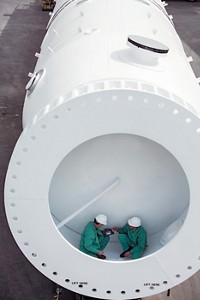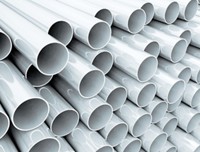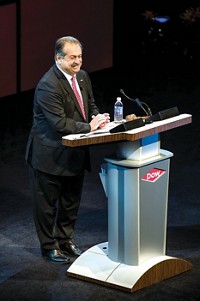Advertisement
Grab your lab coat. Let's get started
Welcome!
Welcome!
Create an account below to get 6 C&EN articles per month, receive newsletters and more - all free.
It seems this is your first time logging in online. Please enter the following information to continue.
As an ACS member you automatically get access to this site. All we need is few more details to create your reading experience.
Not you? Sign in with a different account.
Not you? Sign in with a different account.
ERROR 1
ERROR 1
ERROR 2
ERROR 2
ERROR 2
ERROR 2
ERROR 2
Password and Confirm password must match.
If you have an ACS member number, please enter it here so we can link this account to your membership. (optional)
ERROR 2
ACS values your privacy. By submitting your information, you are gaining access to C&EN and subscribing to our weekly newsletter. We use the information you provide to make your reading experience better, and we will never sell your data to third party members.
Business
Hedge Fund Targets Dow
Activist Investor: Third Point wants big chemical maker to split in two
by Alexander H. Tullo
January 27, 2014
| A version of this story appeared in
Volume 92, Issue 4

A hedge fund run by billionaire investor Daniel S. Loeb has purchased a large stake in Dow Chemical and wants the company, the largest chemical maker in the U.S., to break itself into separate commodities and specialties firms.
The fund, Third Point, didn’t disclose the size of its stake, saying only that Dow is currently its largest investment. However, published reports value the fund’s interest in Dow at $1.3 billion.
Loeb has lit fires under the feet of corporate executives before, most notably at Sony and Yahoo. Since its inception in 1996, Third Point has reported average annual returns of 18%.
The hedge fund’s gripe against Dow is anemic performance. “In April 1999, nearly 15 years ago, an investor could have purchased Dow shares for the same price that they trade at today!” Third Point wrote to investors. “These results reflect a poor operational track record across multiple business segments, a history of under-delivering relative to management’s guidance and expectations, and the ill-timed acquisition of Rohm and Haas.”
Andrew N. Liveris has been Dow’s CEO since late 2004. Third Point is particularly critical of Liveris’s strategy in petrochemicals, which Loeb asserts allows basic chemicals to “subsidize” businesses downstream. This strategy is “misaligned with the changed landscape” of low-cost raw materials from shale. Instead, the firm should be focused on reducing costs and fine-tuning operations, which, the hedge fund claims, can unlock billions in profits.
Third Point is recommending that Dow explore putting its petrochemical-oriented operations into a new company. These businesses generated $38.7 billion in revenues in 2012, 68% of Dow’s total sales. The remaining specialties company would consist largely of former Rohm and Haas assets and Dow AgroSciences.
Dow is already moving its chlorine and derivatives operations into a separate company that would have about $5 billion in annual revenues. In 2009, Dow planned to exit petrochemicals by creating a joint venture with Petrochemical Industries Co. of Kuwait, but that deal fell through.
In a statement, Dow pledged to maintain an “open dialogue” with shareholders but defended its strategy. “We believe our investments have yielded sustainable value for our shareholders and will continue to in the near and long term.”
Charles Neivert, a stock analyst with Cowen & Co., is intrigued by the idea of a split at Dow, but he thinks the petrochemical business is the keeper. “Dow’s recurring attempts at transformation have resulted in a misallocation of resources over a long period of time, creating a situation where almost every segment substantially under-earns its potential,” Neivert wrote assessing Loeb’s plan. “We see the greatest earnings capture in its petrochemical business. Dow should sell everything else.”
Shareholders seem receptive to Loeb’s idea. After news of the Third Point stake broke on Jan. 21, Dow shares climbed 6.6% to close at $45.93.







Join the conversation
Contact the reporter
Submit a Letter to the Editor for publication
Engage with us on Twitter